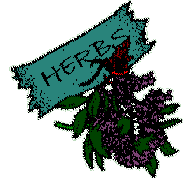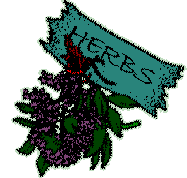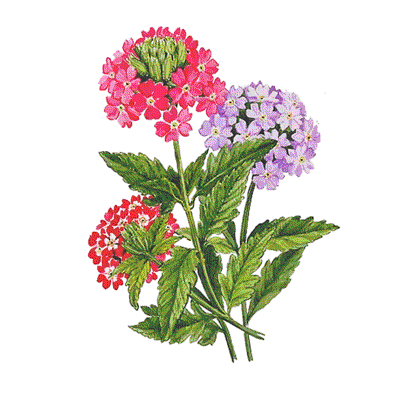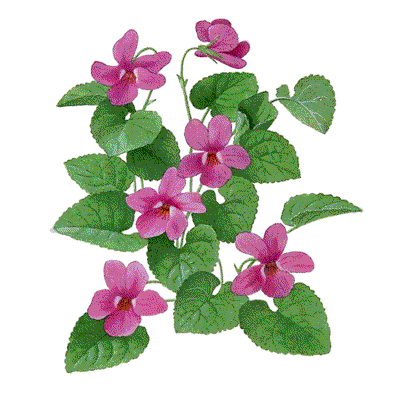 Herbs--V
Herbs--V 
 |
Common Names: Valerian, All-Heal, Cat's Valerian, Garden Heliotrope Latin Name: Valeriana officinalis Parts Used: Root Cultivation: Valerian grows in rich moist humous with a wide range of pH. It is a perennial, hardy to zone 4, and will grow in full sun to part shade. Magickal Uses: Use valerian in protective sachets; place it under your pillow to help you fall asleep. Powdered valerian root is considered a valid substitute for "graveyard dust." Medicinal Uses: Valerian is a tranquilizer useful in treating anxiety, insomnia, and nervous tension. It has fewer side effects than Valium and does not react synergistically with alcohol. Valerian also has a strengthening effect on the heart and may lower blood pressure. It's also an antispasmodoc and can help alleviate stomach or menstrual cramps and irritable bowels. Tincture of valerian helps clear dandruff. Cautions: Valerian may cause headaches, muscular spasms, and palpitations. It is not recommended for long-term use. |
 |
Common Names: Vervain, Verbena, Holy Herb Latin Name: Verbena officinalis Parts Used: Leaves, flowers, and stems Cultivation: Vervain is a tender annual which reseeds readily. It prefers rich moist loam in full sun. Magickal Uses: Vervain is quite a useful magickal herb. It can beused in protective spells, exorcism incenses, and love mixtures. Use it in purifying baths, or drink some vervain tea before retiring to prevent bad dreams. Vervain was reputedly pressed on Christ's wounds to stop the bleeding; it was also considered sacred by the Druids and the Romans. Medicinal Uses: Vervain increases the flow of mother's milk and promotes the onset of menstruation. It is a nerve tonic, strengthening the nervous system, countering depression, and treating nervous headaches. Use it as a mouthwash for infected gums. Vervain is one of the twelve original Bach Flower Remedies. Cautions: Vervain should not be used during pregnancy. Large doses can cause vomiting. |
 |
Common Names: Violet Latin Name: Viola odorata Parts Used: Flowers and leaves Cultivation: Violets are perennial and hardy to zone 5. They prefer a rich, moist humous, acidic to neutral pH, in full to part shade. They are often found growing wild in wooded areas. Culinary Uses: Candied violets are often used as garnishes for sweet desserts and fruit dishes. Violet water is used to flavor tea breads, jellies, jams, and cold soups. Magickal Uses: Carry the flowers to protect against evil and bring good luck. Mix violets with lavender to make a powerful love or lust potion. Medicinal Uses: Violet is a soothing expectorant useful in treating a wide range of respiratory infections. It is especially good in cough syrups for children. Apply violet poultices to relieve feverish or hang-over headaches, and to help heal sore, cracked nipples. The flowers have a slight sedative effect. Caution: Roots and seeds on large doses may cause vomiting. |